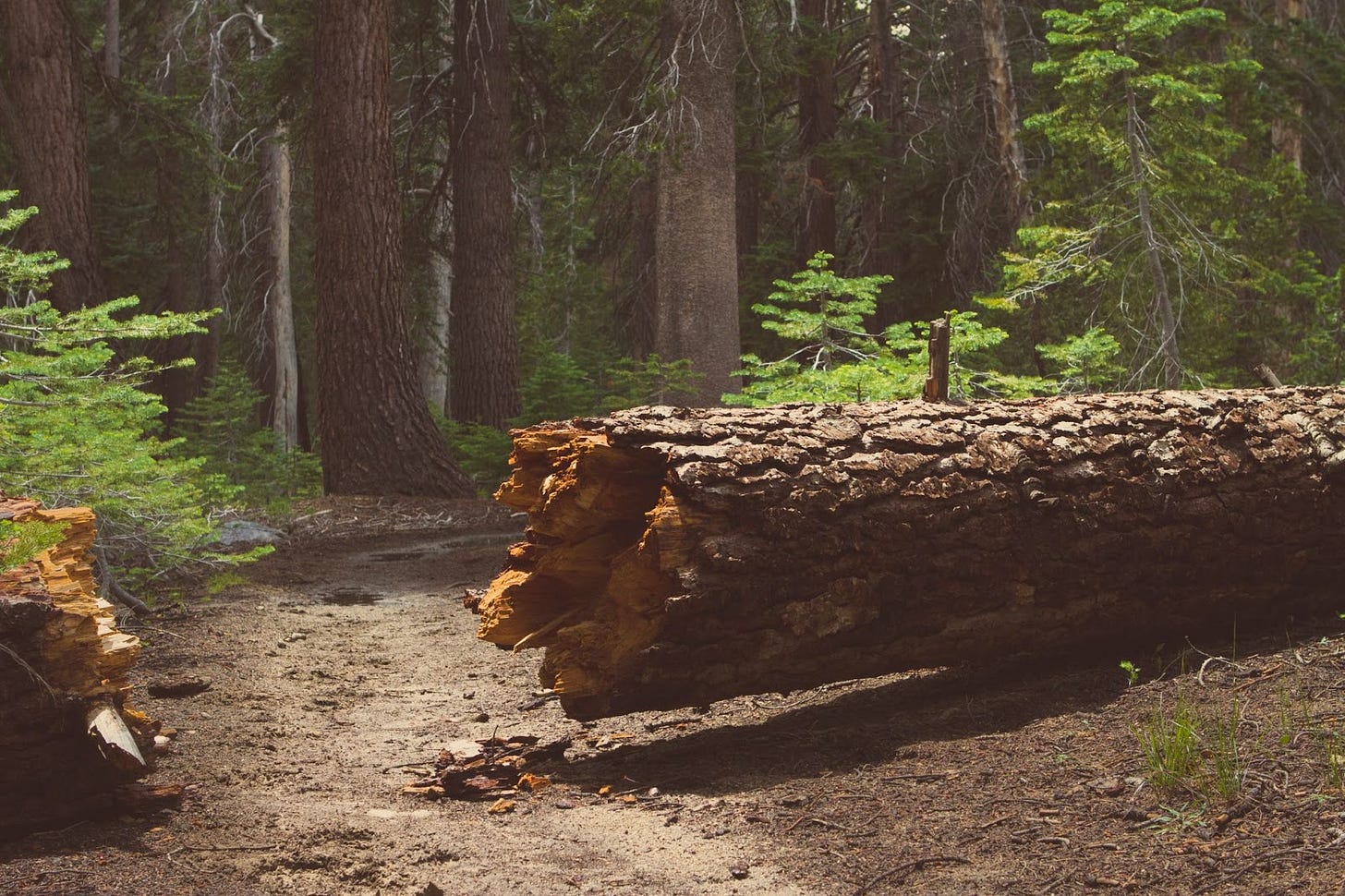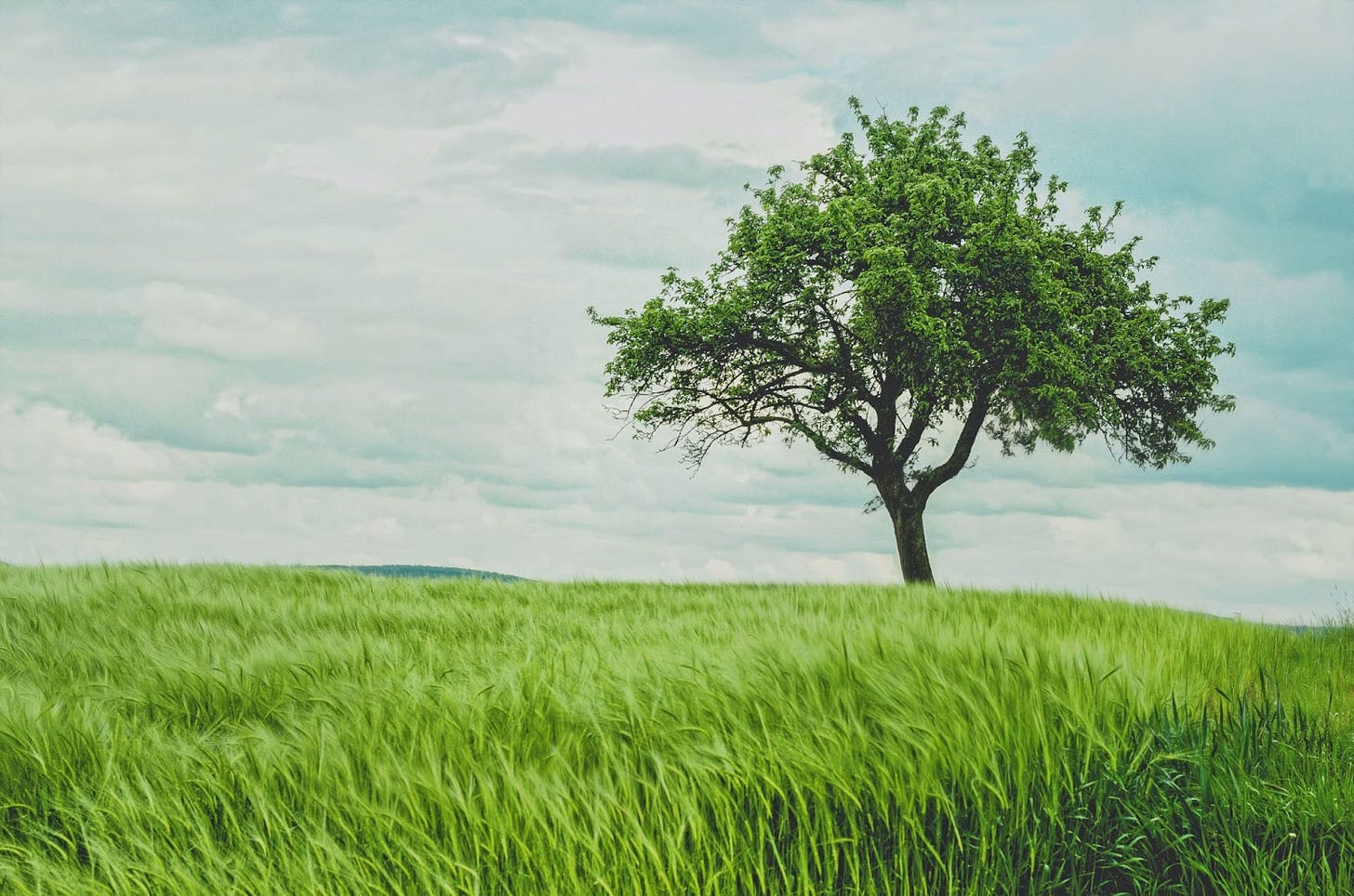Hello and welcome to another edition of Letters from Ximena. In this month’s newsletter I look at what we stand to gain from ”bending”—adapting, changing, and adjusting—in the right direction.
I was scrolling the socials the other day when a post from the inimitable Esther Perel—best-selling author, psychotherapist, and host of two podcasts about relationships, Where should we begin? and How’s Work?—caught my eye. Esther’s work has always fascinated me. She has a deep understanding of how individuals operate in the context of relationships—as romantic partners, professional partners, parents and children, within cross-cultural partnerships, to name a few. This intrigues me, since the person we are and the person we become in a given relationship is hardly ever exactly the same. We are always shifting to some degree: to keep the peace, to make amends, to make the necessary space to understand other parts of our partners and of ourselves. How we relate to others depends, too, on our current state: whether we are tired, stressed, navigating personal challenges, feeling alone, or conversely, supported by our community. These factors all affect how we show up in the world—for ourselves, and others. So when I saw this post on bending, I thought yes:
More than 18 months into the pandemic, it appears there is no “back to normal” switch waiting to be flicked on. Instead, we are being asked to slowly make our way through a number of incremental transitions, bending as we go. We have to adapt in ways we’ve likely never had to before. Perel writes,
Adaptability is fundamental to resilience; it is where your innate desire for safety and spontaneity, stability and change, logic and play can meet. Adaptability is the willingness to bend and remain open to life as it comes.
When you learn to bend, you increase your flexibility each time, whether in your daily stretch or life's most challenging moments. And the more you practice, the more you can tolerate change and harness its power.
If we can remain open and flexible to our circumstances, we become much better at weathering change. This is a crucial life skill to develop, given just how much change we experience over the course of our lives. As Heraclitus put it, “The only constant in life is change.”
In its most trying form, bending is a mode of survival. Think of the trees that can withstand a tropical storm. Palm trees, for example, sway in the direction of hostile winds to stay alive, while “sturdier” trees can find themselves upended. The solution is not to avoid the wind, but to learn to adapt in its presence. In fact, research shows that wind can even serve to strengthen trees as they grow. Wind load prompts supporting tree growth, and helps the tree to become strong enough to survive future stresses. We may be burdened by bending, but we are strengthened by it, too.
This idea is most famously explored in one of Aesop’s Fables, “The Oak and the Reeds.” The oak believes its strength to be greater than the wind and winds up uprooted, while the reeds bow before it and survive. This same parable appears across many cultures. Bending can help us to skillfully navigate difficult situations.
Better to yield when it is folly to resist, than to resist stubbornly and be destroyed. - Aesop’s Fables
Sometimes, going with the flow is our best chance of survival, even if we do not like which way the wind is blowing. Anyone who has ever had to code-switch to find belonging or safety in an environment or community knows that linguistic bending can be a necessary form of survival. Many expats and students studying abroad learn to embrace their new home culture and language, even if it’s at times challenging, in order to make the most of their experience. Entrepreneurs demonstrate a similar type of bending when they “pivot” to a new product or strategy in order to save their companies.
Of course, not every circumstance requires bending. It’s important to be discerning about when to be flexible and when to hold firm. Sometimes a less yielding response is called for, such as advocating for ourselves, upholding our boundaries, or actively resisting the status quo. In these cases, being unwilling to bend can be helpful: A startup employee frustrated by repeated organizational changes may leave to find a better, more stable match. A partner in a relationship may reach a limit in compromises, and opt to stand her ground in order for the relationship to evolve for the better. A parent may want to give into a child’s demands to avoid a tantrum, but learn to say “No” for the long term benefit of the child instead. Bending does not ask us to become a human doormat or perpetual people-pleaser. It requires discernment—the ability to know when it is most beneficial to be flexible, and when to stay firm—along with the fortitude to withstand the discomfort that sometimes comes with it.
With each bend, we learn more about ourselves, our limits, and what we are made of. Sometimes bending hurts, like a stretch gone too far, as when we fail to warm up for a run and pull a muscle. Sometimes it delights, like an energizing stretch at the start of the day, open and filled with possibility. The sensation of bending—if we are attuned to it—can be revealing.
Many of us are bending every day—with our children, partners, parents, and colleagues. We bend as a form of compromise, adapting in conversation and conflict to meet each other halfway. We bend to demonstrate understanding—to give others the space to be themselves, and accept them as they are. We bend in collaboration—to show that despite it all, we are still willing to do the work.
Right now, the world is collectively bending. The pandemic has forced our hand. When the world is upside down, we bend to meet it in its new form. We have been here before, even if the circumstances were different: think back to 9/11, to Hurricane Katrina, and the many other collective challenges we’ve been thrust into time and time again. Then, as now, we adapted to the unthinkable. We found flexibility even when we couldn't understand our circumstances. We bent even when it was uncomfortable, and slowly but surely made it to the other side. Now, we bend again. Stronger than the last time, and strengthening as we go.
💝 Listen Like You Mean it, gift edition! It’s the holiday season, supply chains are cray, and you’re not even sure you want to do gifts this year, amIrite? I get it! If you’re looking for a simple but meaningful gift for a friend, colleague, or loved one, consider gifting a copy of my book this holiday season. It’s perfect for the partner who wants to keep investing in their relationship, the manager who wants to get better at hearing out their team, the introvert who loves a deep 1:1, for aspiring user researchers, and more. You can purchase a copy directly from my website (the best way to support an author is to use their affiliate links 😘). Thank you and happy holidays.
👂 Listen Like You Mean it in conversation: Two great conversations to highlight! The first with my friends over at Reconsidering, a new podcast from three design industry heavyweights about what it means to live a good life. I’m delighted to be included in their very first season—check out episode 5 for our conversation. I also had a great conversation with Kristy Wallace, CEO at Ellevate Network, about how to improve our listening skills and strengthen our relationships. You can listen here.
🕵🏻♀️ The Rest Trials behind the scenes: As I dive into research for my new book, I’ll be sharing occasional updates on how it’s going. The first is up on Medium’s Creator Hub.
💌 As always, the best thing you can do for me is share this edition of the newsletter, or others you enjoy, with your friends and coworkers. Thanks for being here and for sharing the love. 💌










